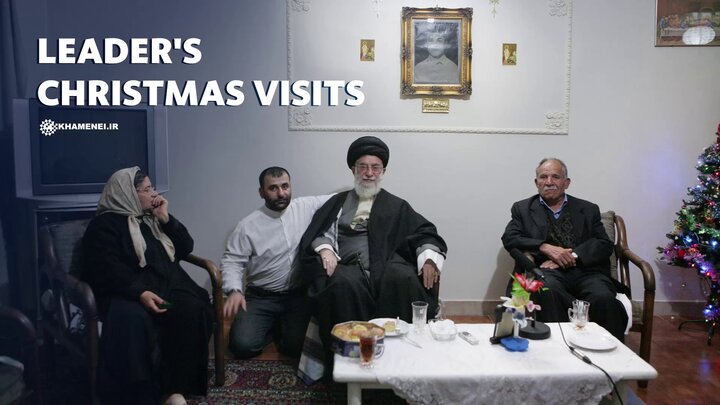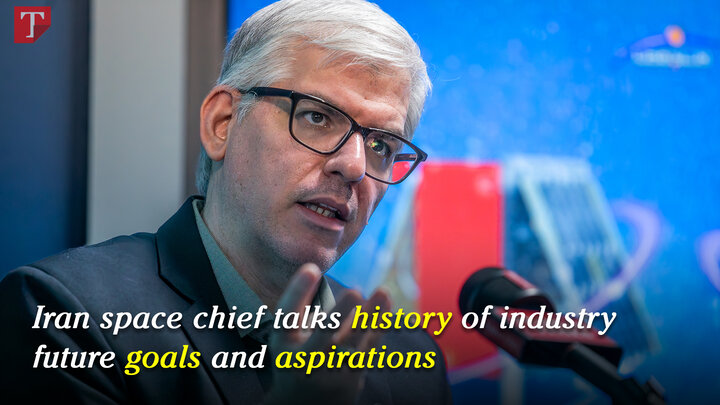-
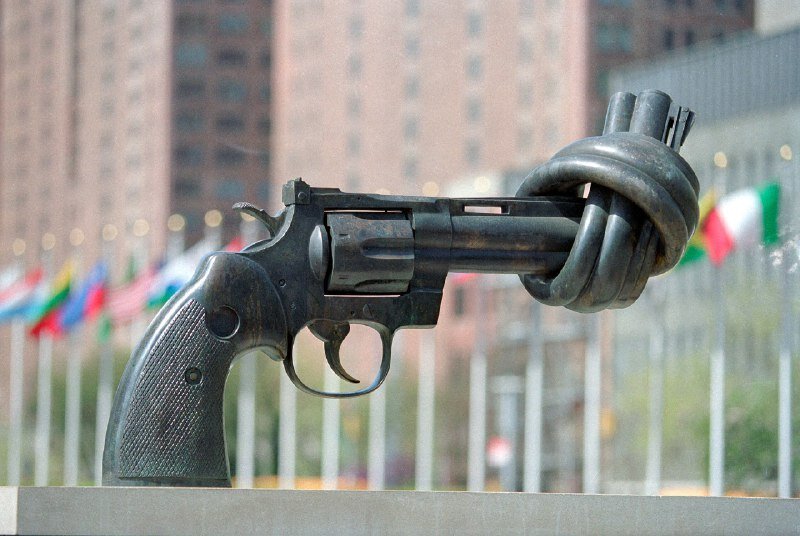 2025-12-31 22:14
2025-12-31 22:14
UN Security Council paralyzed in face of US-Israel threats
Iran says will resolutely defend its territorial integrity, people and national interests
TEHRAN - Iranian Foreign Minister Abbas Araghchi has warned that the United States would bear full responsibility for the consequences of any aggression against Iran, saying the Islamic Republic would respond firmly to any hostile action.
-
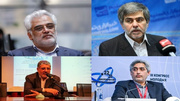
By Sahar Dadjoo
Targeted killing of scientists is a criminal act, says Indian analyst
Vineet Tiwari says the assassinations linked to “Operation Narnia” violate sovereignty, international norms, and basic human ethics
TEHRAN – In an exclusive interview with Tehran Times, Vineet Tiwari, an Indian writer and civil society activist, offers a critical assessment of revelations contained in a recent Washington Post’s investigation produced in partnership with PBS Frontline, which details Israel’s covert campaign, known as “Operation Narnia,” targeting Iran’s nuclear scientists.
-
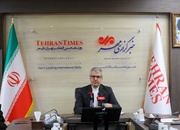
Iran’s new ambassador to Lebanon will soon start his mission: Foreign Ministry
TEHRAN – In a visit to the office of the Mehr Media Group, that includes the Tehran Times and Mehr news agency, Foreign Ministry spokesman Esmaeil Baghaei said Iran’s new ambassador to Lebanon will soon start his diplomatic mission.
-

By Shahrokh Saei
Peace on paper, fire on the ground: Trump’s seven-nation strikes in 2025
TEHRAN – Since returning to the White House in January 2025, Donald Trump has tried to cast himself as a peacemaker, insisting that his second term has brought an end to conflicts that long tied down the United States abroad. He has spoken of breaking with what he calls America’s era of “endless wars,” presenting his foreign policy as restraint, not intervention.
-

By Garsha Vazirian
The anatomy of a broken Syria and the mirage of sovereignty
How al-Sharaa has failed to secure Syria against relentless Israeli aggression and internal rot
TEHRAN – More than a year after the collapse of the al-Assad government in December 2024, the “New Syria” has proved to be a cruel mirage.
-

By Afshin Majlesi
Iran, a paradise for nature lovers
TEHRAN - A land of remarkable natural diversity, Iran boasts a great range of natural diversity. From high mountain peaks and peaceful forests to golden deserts and vibrant wetlands, the country has something unique to offer every nature lover.
Politics
-
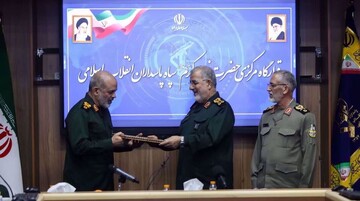
Brigadier General Ahmad Vahidi appointed IRGC deputy chief
TEHRAN – Leader of the Islamic Revolution Ayatollah Seyyed Ali Khamenei has appointed Brigadier General Ahmad Vahidi as the new deputy commander of the Islamic Revolution Guards Corps (IRGC), according to an official announcement.
-
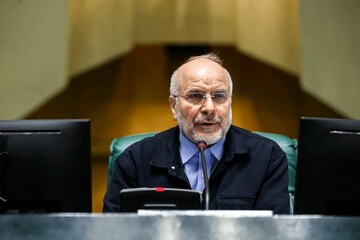
General Soleimani’s legacy remain alive and influential: parliament speaker
TEHRAN – Iran’s Parliament Speaker Mohammad Baqer Qalibaf said on Wednesday that the legacy and teachings of martyr Lieutenant General Qassem Soleimani remain alive and influential, describing them as a guiding model rooted in resistance, regional stability, and strategic foresight.
-
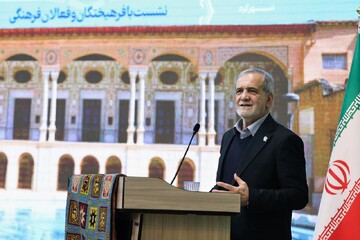
Pezeshkian says foes eying on economic pressure on Iran, not bombardment
TEHRAN – President Masoud Pezeshkian said on Wednesday that Iran’s adversaries are pinning their hopes on economic pressure rather than military force, stressing that no country can be defeated through bombardment alone.
Sports
-

Iran to play Spain in Madrid on June 2
TEHRAN - The Iran Football Federation's spokesman, Amirmehdi Alavi, recently confirmed a friendly match between Iran and Spain on June 2 at the Metropolitano Stadium in Madrid.
-

Iran futsal team to play two friendlies with Iraq
TEHRAN – The Head of Iran’s Futsal League Organization announced that the national futsal team will play two friendly matches against Iraq as part of their preparations for the 2026 AFC Futsal Asian Cup.
-

Iranian women weightlifters have bright future: Anoushiravani
TEHRAN - Sajjad Anoushiravani, president of the Iran Weightlifting Federation, given the strong talent and potential of Iranian women, they will soon win medals at the Asian and even world level.
Culture
-

New mural at Valiasr Square depicts martyr general Haj Qassem Soleimani
TEHRAN –On the anniversary of the martyrdom of national hero Haj Qassem Soleimani, a new large-scale mural titled “Iran-Mard” (literally meaning Man of Iran) was unveiled at Tehran’s Valiasr Square.
-

Iranian Artists Forum screens “National Theater Live: Julius Caesar”
TEHRAN – The 53rd program in the series of screening of prominent filmed theaters, at the Iranian Artists Forum (IAF) in Tehran, was dedicated to “National Theater Live: Julius Caesar” (2018) directed by Tony Grech-Smith.
-

Nofel Loshato Theater to host stage reading of García Lorca’s “The House of Bernarda Alba”
TEHRAN – Nofel Loshato Theater in Tehran will host the stage reading of the 1936 play “The House of Bernarda Alba” written by the Spanish dramatist Federico García Lorca on January 3, 2026.
Economy
-
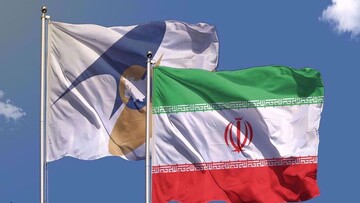
Iran's export to Eurasia increases 10%
TEHRAN- The value of Iran’s export to the Eurasian Economic Union (EAEU) member countries rose 10 percent during the first eight months of the current Iranian calendar year (March 21-November 21), as compared to the same period of time in the previous year, the Islamic Republic of Iran Customs Administration (IRICA) reported.
-
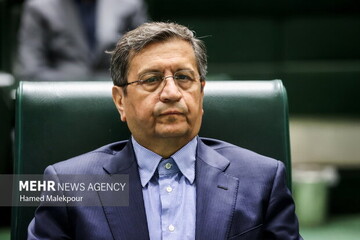
Hemmati appointed new governor of CBI
TEHRAN- Abdolnaser Hemmati was elected as the new governor of the Central Bank of Iran (CBI).
-

Iran’s export to Africa up 77% in 8 months on year
TEHRAN- The value of Iran's export to African countries in the first eight months of the current Iranian calendar year (March 21-November 21) reached $849 million, reflecting a 77-percent increase compared to the same period last year, an official with Iran's Trade Promotion Organization (TPO) announced.
Society
-
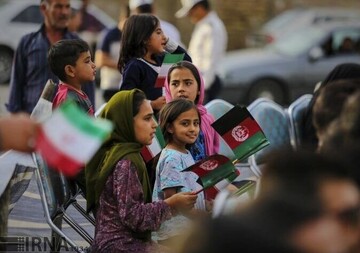
Afghans coming from Iran have ‘better education, food security’ than those returning from Pakistan
TEHRAN - The Office of the United Nations High Commissioner for Refugees has said those Afghan refugees returning from Iran often have more education, better food security, and housing than those returning from Pakistan.
-

Health ministry observes national social work day
TEHRAN – The ministry of health commemorated the 40th national social work day on Wednesday, highlighting intersectoral collaboration to support children within the health system.
-

Drought persists despite intensified precipitation
TEHRAN – Despite recent heavy rainfalls, water resources in the country are still under pressure, with a large part of the country grappling with drought.
Tourism
-

Iran, a paradise for nature lovers
TEHRAN - A land of remarkable natural diversity, Iran boasts a great range of natural diversity. From high mountain peaks and peaceful forests to golden deserts and vibrant wetlands, the country has something unique to offer every nature lover.
-
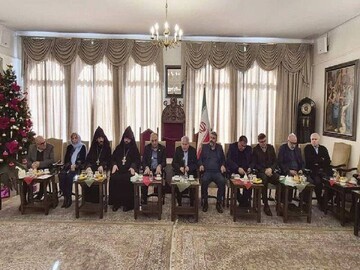
Armenian community, genuine part of Iranian nation
TEHRAN--The Armenian community of Iran is not a minority, but a genuine and deep-rooted part of the Iranian nation, Minister of Cultural Heritage, Tourism and Handicrafts Reza Salehi-Amiri said during his visit to the Saint Sarkis Cathedral in Tehran on Tuesday,
-
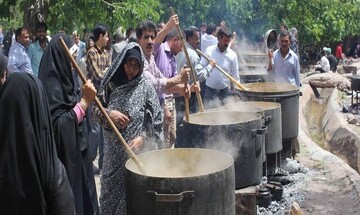
Bulgur-Pazan ritual, still alive in memory of southern Khorasan people
TEHRAN--In the heart of the southern Khorasan desert, a centuries-old ritual continues to thrive in the collective memory of local communities.
International
-

Peace on paper, fire on the ground: Trump’s seven-nation strikes in 2025
TEHRAN – Since returning to the White House in January 2025, Donald Trump has tried to cast himself as a peacemaker, insisting that his second term has brought an end to conflicts that long tied down the United States abroad. He has spoken of breaking with what he calls America’s era of “endless wars,” presenting his foreign policy as restraint, not intervention.
-

The anatomy of a broken Syria and the mirage of sovereignty
TEHRAN – More than a year after the collapse of the al-Assad government in December 2024, the “New Syria” has proved to be a cruel mirage.
-

Lebanon in 2025: A nation adrift in chaos and defiance
BEIRUT —2025 offered no respite for Lebanon. Fleeting moments of calm only exposed deeper rot gnawing at the state’s foundations. Institutions crumble under chronic mismanagement, while political forces wallow in disarray.
Most Viewed
-
Manufacturing chaos: How Western and Israeli actors seek to hijack Iran's peaceful protests
-
Failure in June, rhetoric in December
-
Netanyahu confirms message to Iran via Putin, says Israel seeks no escalation
-
Saudi ‘red line’ and UAE’s adventurism in Yemen
-
UN Security Council paralyzed in face of US-Israel threats
-
Iran blacklists Royal Canadian Navy as ‘terror organization’
-
Drought persists despite intensified precipitation
-
Our restraint should not be misread as weakness, Iran FM writes in The Guardian
-
Iran’s new ambassador to Lebanon will soon start his mission: Foreign Ministry
-
Israel conceals extent of casualties from 12-day war: Iran war room chief
-
Presidents of Iran and Russia discuss advancing bilateral relations
-
Enemy stages street protests to mask 12‑day war defeat
-
The anatomy of a broken Syria and the mirage of sovereignty
-
Experimental archaeology at Masuleh: Medieval Iron smelting technology reconstructed
-
Afghans coming from Iran have ‘better education, food security’ than those returning from Pakistan











